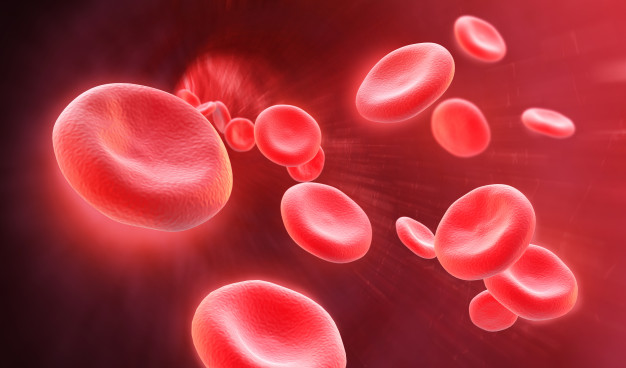8 Most Popular and Beloved Film Genres
There are various types of film genres that are most popular and have many fans. To increase your knowledge about film genres, here are the most popular and beloved film genres. What are they? Let's find out.

Kapanlagi.com - Kidneys are one of the organs that play an important role in the human body. Unfortunately, the kidneys are also one of the organs that are vulnerable to disorders and damage. One of the kidney diseases that is quite common is kidney failure and kidney stones. However, the function of the kidneys for the body is very vital and has many roles.
When the function of the kidneys is disturbed, the performance of other organs in the body will also be affected. It is not surprising that kidney disease is one of the most threatening and feared. Therefore, maintaining kidney health has become a necessity. Because only by doing so, the function of the kidney organ will also be maintained.
So what are the actual functions of the kidneys for human health? Here are the explanations, which have been summarized from various sources.

(credit: freepik)
One of the most vital functions of the kidneys is also playing a role in controlling blood pressure. In the kidneys, there are two types of hormones, namely renin and angiotensin. Both types of hormones play a role in maintaining the level of tension and contraction in blood vessels.
In addition, as reported from mcb.berkeley.edu, the kidneys also affect the regulation of extracellular fluid volume. In relation to this, the kidneys work to ensure an adequate amount of plasma to maintain blood flow to vital organs.
In relation to blood, the kidneys not only play a role in helping to regulate blood circulation. More than that, the kidneys also function in filtering and cleansing the blood. This is because, without realizing it, we have mixed the blood with foreign substances or compounds through the food consumed and the pollution inhaled.
Fortunately, the kidneys have a part called the nephron. This part then plays a role in filtering and cleansing the blood from pollution and foreign compounds.
In the body, the kidneys also function in producing urine. As we know, urine is not just water, it also contains urea and ammonia, as well as other waste substances that are useless to the body. The kidneys play a role in collecting and processing water and these substances, until they can be excreted along with urine. Therefore, it is not surprising that one way to maintain kidney function is by drinking enough water.

(credit: freepik)
Related to the previous function of the kidneys, the kidneys not only regulate the fluid that is excreted as urine. On the other hand, the kidneys also maintain fluid balance. This is because the presence of fluid in the body plays a role in regulating blood viscosity. With the presence of the kidneys, the amount of water in the body is more controlled, thus maintaining the concentration level of the blood.
Potassium is one of the minerals needed by the body. However, having too much or too little potassium can also be a threat to health. Having too much potassium can lead to a condition called hyperkalemia, where the heart muscle's performance slows down. This condition should not be taken lightly as it can be fatal, leading to death.
On the other hand, having too low potassium levels can also have a negative impact on weakening the muscle system, resulting in fatigue. Fortunately, the kidneys can help regulate the amount of potassium in the body to maintain balance, according to the body's needs.
Another function of the kidneys is to participate in regulating the acid-base balance in the body. Automatically, when there is an excess of acid or base in the body, the kidneys will process and excrete them through urine. Excess acid or base in the body can have many negative effects. That is why kidney health should always be given attention.

(credit: freepik)
The function of the kidneys is not only related to blood, fluids, urine, and acid-base balance. The kidneys also play an important role in maintaining bone health. This is related to the kidneys' ability to regulate the calcium levels in the blood. In addition, it turns out that the kidneys can also produce calcitriol, which is a substance that helps maintain the amount of calcium and phosphate in the body.

(credit: freepik)
Maintaining blood sugar levels is also very important to always pay attention to. Because various health problems can arise if the blood sugar levels in the body are not controlled, one of them is diabetes. Not many people realize that maintaining kidney health can be a step in preventing diabetes.
The kidneys play a very important role in supporting the production of insulin and adrenaline hormones. As we know, insulin and adrenaline hormones are closely related to blood sugar levels.
Insulin hormone works to stabilize high blood sugar levels, while adrenaline hormone works to increase blood sugar levels if they are too low. This means that indirectly the kidneys also play a role in maintaining stable blood sugar levels.
Those are some of the reviews about the 8 functions of the kidneys for body health, hopefully useful and can increase knowledge.
(kpl/psp)
Cobain For You Page (FYP) Yang kamu suka ada di sini,
lihat isinya
There are various types of film genres that are most popular and have many fans. To increase your knowledge about film genres, here are the most popular and beloved film genres. What are they? Let's find out.
Here are 14 benefits of soursop juice for body health, along with its nutritional content. What are the benefits of soursop juice? Let's check it out, KLovers.
The causes of headaches can occur due to various factors that affect sensory organs such as the eyes and ears.
The types of beef cattle with the best meat quality are always sought after by many people. This is because beef cattle have many benefits for humans. So, what are the types of beef cattle?
In living life, humans interact and communicate with each other. In fact, communication is very important as it is always used in various aspects of life. Learn more about it here.
It is also important to know that hadiths have various classifications according to their formation, such as the beginning of the chain of narration, the integrity of the chain of narration, the number of narrators (rawi), and the level of authenticity of the hadith. Here's the complete explanation.
Here are 15 benefits of boiled cassava for body health, along with the content and how to process it. Let's check it out KLovers.
Here are wise Naruto quotes that can touch your heart. What are those quotes? Let's check them out, KLovers.
Malaria is a health disorder caused by parasites. The cause of malaria itself can occur due to various triggering factors that are easily transmitted through the blood of malaria patients.
It is important for you to know that advertisements are divided into several types based on their content, media, and objectives. For those of you who are not familiar with the complete explanation of the types of advertisements, check out the following review.
Floor patterns are one of the elements in the art of dance. Therefore, the existence of floor patterns is very important, especially in traditional group dances. Read more about it here.
Commitment is very important. Because, the presence of commitment will affect a person's consistency in taking action. Find a deeper explanation here.